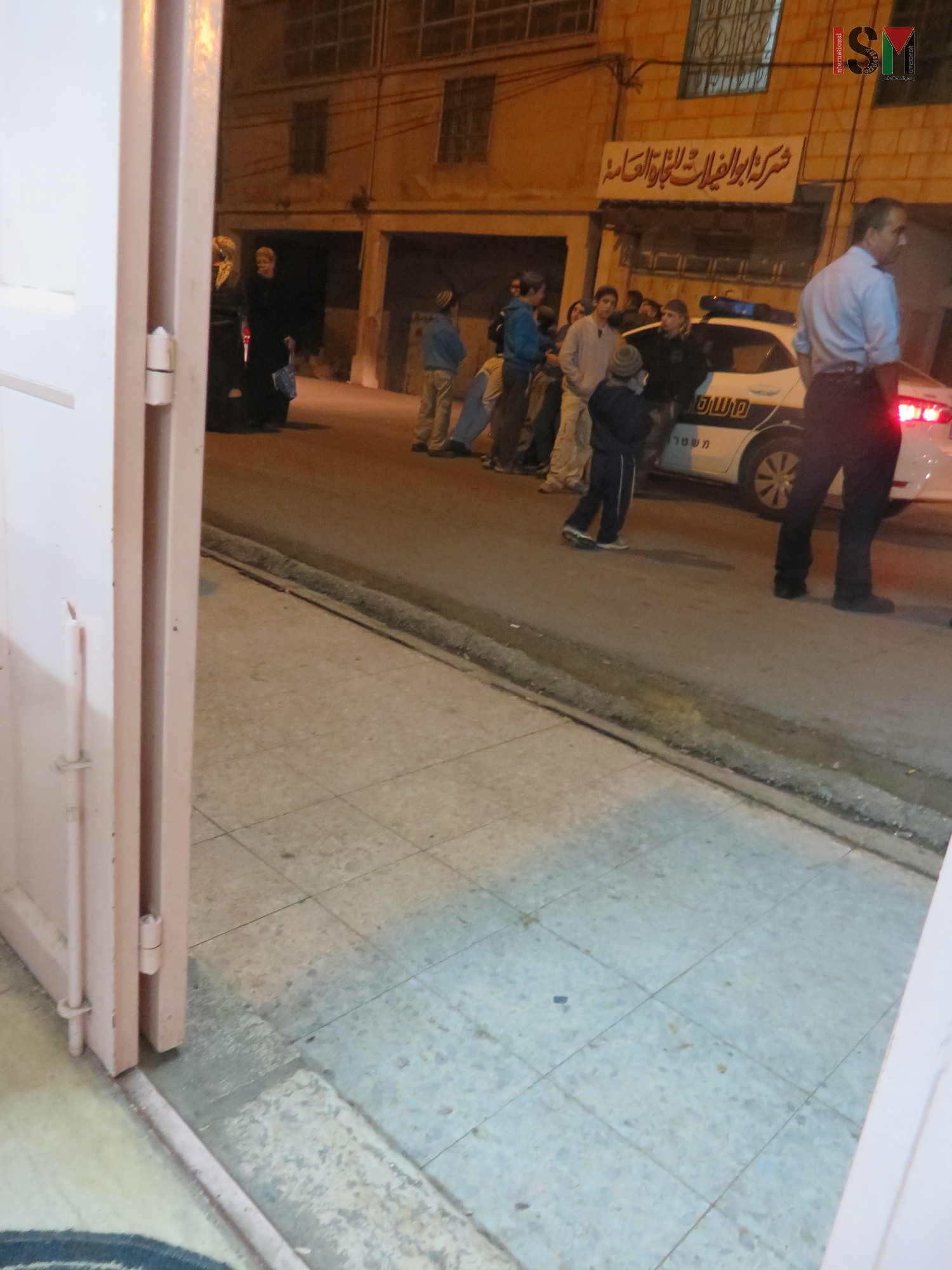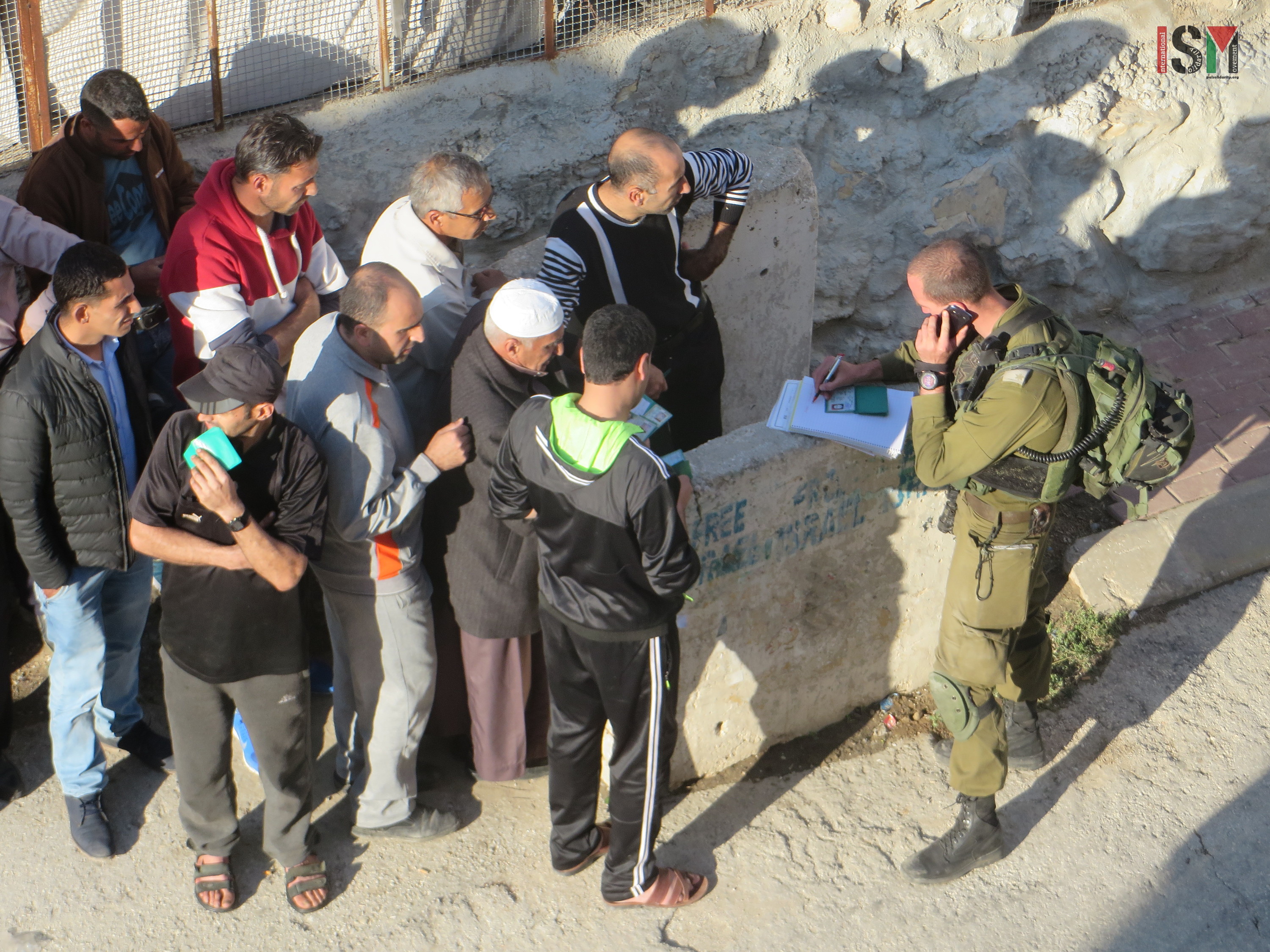-
Constant settler harassment for Palestinians in Shuhada Street
30th October 2015 | International Solidarity Movement, al-Khalil team | Hebron, occupied Palestine Wednesday 28th in the evening activists from the International Solidarity Movement once again received a call from local shop owner Ghassan telling that his shop was being surrounded by settlers from the illegal settlements in al-Khalil (Hebron). The settlers were shouting curses […]
-
Surviving in Khuzaa: life in the caravans
30th October 2015 | International Solidarity Movement, Gaza team | Khuzaa, Gaza Strip, occupied Palestine Almost a year and a half after the Zionist massacre of Gaza ended, most families in Khuzaa are still waiting for international aid and materials for reconstruction. Many of these families are living with their relatives or renting another […]
-
Palestinian residents of Hebron required to register in preparation for severe new restrictions
30th October 2015 | International Solidarity Movement, al-Khalil team | Hebron, occupied Palestine Palestinians gather in the street to be registered in the Tel Rumeida neighbourhood in occupied Hebron. It is being reported that the area will be closed off completely for people who are not residents of the area and who are not registered within […]
Action Alert An Nabi Saleh Apartheid Wall Arrests BDS Bethlehem Bil'in Cast Lead Demonstration Denial of Entry Ethnic Cleansing Farmers Gaza Global Actions Hebron House Demolition International law Israeli Army Jerusalem Live Ammunition Nablus Ni'lin Prisoner Ramallah Rubber-coated steel bullets Settlement Settlers Settler violence Tear-Gas Canister Video



